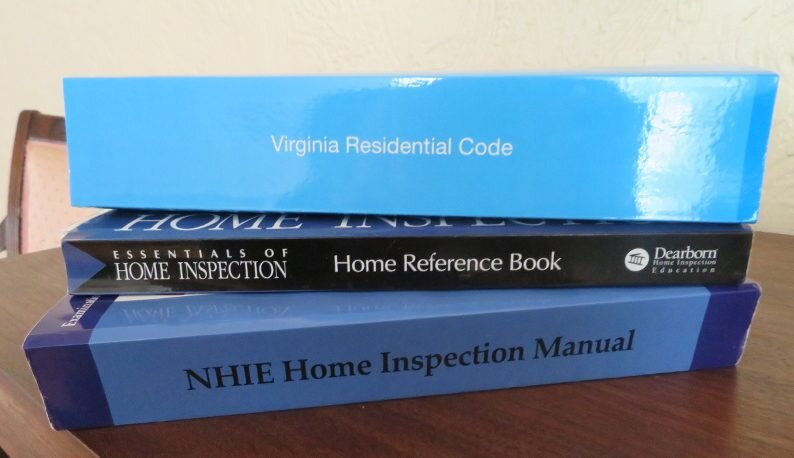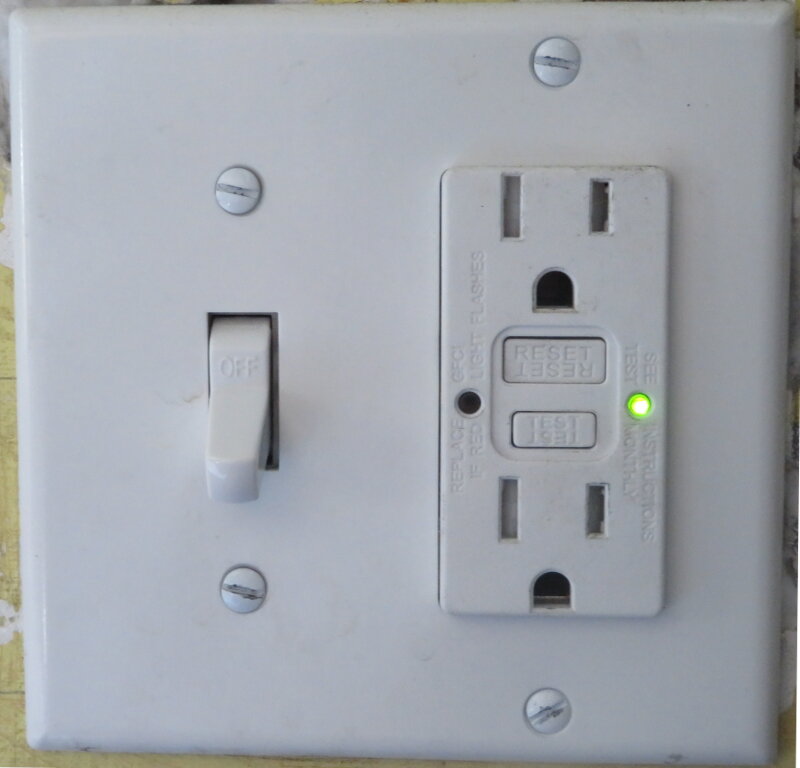“So, Is The House Up To Code?”
The Question:
How Do I Know If My House Is Up To Code?
In my experience, the question gets asked somewhere around the end of an inspection. The buyer, carefully and quietly with full eye contact, will ask: “So, is the house up to code?”
There it is.
The fulcrum, the keystone, the linchpin.
The seriousness is real and the anxiousness palpable. Emotions simmer below the skin. Sweat beads on the forehead. Red eyes fight back against waning caffeine reserves, and the stress of taking off from work churns the stomach. Hands tightly grasp cellphones like buoyant debris after a shipwreck.
Did the house pass or fail? Come on! Is this a fantastic find or flawed and flimsy? Don’t hold out! Tell me! The fate of the family’s future hangs in the balance!
On other occasions, the question is the first thing out of a buyer’s mouth: “Good to meet you, Joe. Is this house up to code?”
Here, I politely deflect and suggest we begin the inspection.
Nevertheless, the question is an important one, and no worthy inspector would ever make light of a buyer’s concerns. Houses aren’t inexpensive.
The Contradiction
It just so happens that this question cuts to the quick of a contradiction central to the home inspection profession. Namely, home inspectors need to know building code, but we cannot quote building code.
Wait. What?!
What is this blasphemy? Would a firefighter forego his ladder? Would a surgeon scrap her scalpel?
This situation is not quite as backwards as it seems, but does call for some explanation.

Understanding Building Code
It is important to understand that all the different regulations for residential structures: building code, electrical code, plumbing code, etc. are not set in stone.
I sometimes get the impression that people think they are eternal – that perhaps Moses had them tucked away under the Ten Commandments somewhere as he descended Mount Sinai. As it is, they change – a lot actually.
For instance, the NEC (National Electrical Code) gets reissued every three years. The national part is also a bit misleading. States adopt, incorporate, and modify parts of the national code as they see fit. After that, local municipalities, cites and counties, can further alter code requirements.
Mystery House
Guess what?
None of this happens in a uniform manner. Whenever two or three home inspectors gather together, they’re whispered rumors of remote rural counties still clinging on to building code from the 1990s. [Imagine spooky sounds]
That’s not all.
Unbeknownst to most, manufacturer’s specifications actually supersede building code. If your air conditioner is a York and your neighbor’s a Trane, the exact specifications for their installation will be fraught with differences.
Whew. It’s a lot to digest. I know. Think of it this way. Even a four year old house, assuming its construction was perfect, would already be out of code compliance.
That twelve year old house with the lush lawn and pristine paint – not up to code. That mid-century rancher with the sunken living room and floor-to-ceiling windows – not up to code. That one-of-a-kind 19th century Victorian with the grand staircase and ten foot ceilings - don’t even think about it.
So, What Does A Home Inspector Do?
Amid the seemingly hopelessness of this situation, it’s important to remember that a home inspector’s job is to assess the physical condition of a house and its operational systems. We don’t make anyone do anything. Good home inspectors give buyers the information they need to make well-informed decisions.
So how does this play out?
I’ll give you two examples to illustrate.
What If My House Is Not Up To Code?
In many older homes the guardrails at the top of the stairs are only thirty inches high. The modern standard is thirty-six inches. Higher is safer. Strictly speaking, a buyer would be wise to replace any older guardrail once the house is theirs. However, if the guardrail is a carefully carved one-of-a-kind mahogany masterpiece that would cost as much as a new bathroom today, the buyer may choose to keep it and just be mindful of the liability.
Home inspectors provide information. Enforcement does not figure into the job.
The Case Of The GFCI
Now, this does not mean that we are laissez-faire about safety. The gulf between a guardrail that is six inches too short and old wiring is vast.
Take the case of GFCI protection. Ground fault protected outlets (GFCIs or GFIs) are designed to prevent the flow of electricity into a grounded object outside the circuit. This makes them an improvement over conventional outlets in wet areas.
Originally, in the early 70s, they were only required for outlets adjacent to swimming pools. A decade later they were required in both bathrooms and kitchens. Now the NEC requires them on over a dozen specific types of circuits. Because they are a safety feature for electrical systems in wet areas, I give more emphasis to upgrading outlets than short guardrails. Both of these examples would be in a report, but the potential for danger and harm dictates a difference in priority.

Somewhat curiously, even the potential peril of archaic electrical systems does not change the fact that I cannot quote building code. As stated in the Home Inspector Licensing Regulations for the Commonwealth of Virginia:
“[A] home inspection does not include a review for regulatory compliance, such as compliance with the Virginia Uniform Statewide Building Code.”
What is a home inspector to do?
Why A Home Inspection Is A Valuable Tool For A Homebuyer
Speaking only for myself, I approach this delicate dilemma by recommending upgrades. I don’t quote building code or require anything. I do, however, let buyers know what their options are when it comes to safety.
Buying a house is a personal decision and what people want and expect varies greatly. Some people want an older house they will make their own; other people want a house in working order and have a low threshold for rebuilding and renovation.
Your home inspector, whom you probably meet about five minutes before the inspection, might get an impression of where you are on that scale, but is never going to know the whole picture. Home inspectors don’t make decisions for you.
Our job is to assess the condition of a house at the time of a given inspection and, drawing on our experience and knowledge, provide you with the information you need to make the best decision for yourself.
Suggested: Historic Homes: An Unofficial Buyers Guide
The Argument For Home Inspections Of New Houses

How can I help?
I love to teach and answer questions.
Use this contact form to get in touch or schedule your appointment.

